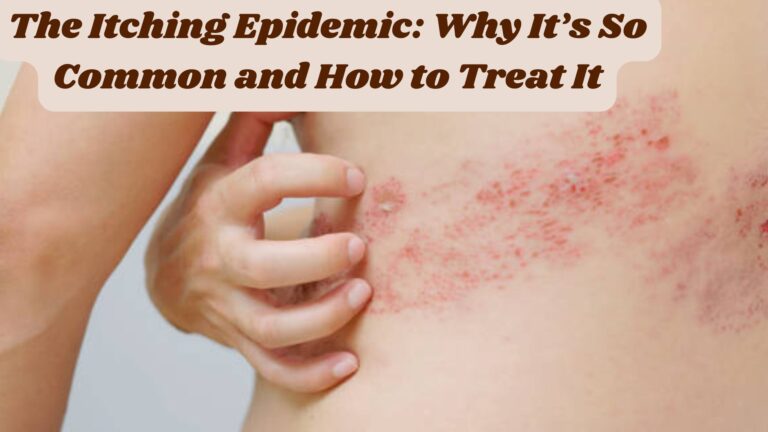Introduction:-
Post-Accident Recovery: Alternatives to Allopathic Medicine for Restoring Health

Life can change in an instant when an accident occurs. Whether it’s a car crash, a fall, or any other unexpected event, injuries can leave you physically and emotionally shaken. In the aftermath, many individuals turn to allopathic medicine, the conventional medical system, for treatment. While allopathic medicine has its merits, it’s essential to explore alternative approaches to recovery, especially when conventional treatments fall short or cause unwanted side effects.
In this comprehensive guide, we will delve into various alternatives to allopathic medicine that can aid in post-accident recovery. From holistic therapies to lifestyle changes, these approaches prioritize your overall well-being and aim to restore your health after an accident.
What are some of the alternative approaches discussed in the comprehensive guide that can aid in post-accident recovery, and how do they prioritize overall well-being and aim to restore health after an accident?
Allopathic medicine, also known as conventional or Western medicine, is the dominant medical system in most countries. It primarily uses drugs, surgery, and other interventions to treat symptoms and diseases. While allopathy has made significant advancements in trauma care and acute treatment, it may not always offer comprehensive solutions for post-accident recovery.

The Limitations of Allopathic Medicine
- Overreliance on Medications: Allopathic medicine often relies on prescription medications to manage pain and inflammation. While these drugs can be effective, they may come with side effects and the risk of dependency.
- Narrow Focus: Allopathy typically addresses the immediate physical symptoms of an injury but may not consider the broader factors affecting recovery, such as emotional trauma, stress, and lifestyle.
- Neglect of Holistic Well-Being: Allopathy may not emphasize holistic well-being, including mental and emotional health, nutrition, and lifestyle choices, which are crucial for a complete recovery.
Alternative Approaches to Post-Accident Recovery
1. Holistic Medicine
Holistic medicine takes a comprehensive approach to healing, considering the mind, body, and spirit as interconnected. It often includes practices like acupuncture, chiropractic care, and naturopathy. These therapies aim to restore balance and promote overall well-being, making them valuable in post-accident recovery.
Acupuncture: This ancient Chinese practice involves inserting thin needles into specific points on the body to relieve pain, reduce inflammation, and improve energy flow. It can be particularly effective in managing chronic pain resulting from accidents.
Chiropractic Care: Chiropractors focus on the musculoskeletal system, using adjustments to align the spine and alleviate pain. This can be beneficial for individuals with back and neck injuries from accidents.
Naturopathy: Naturopathic doctors emphasize natural remedies, nutrition, and lifestyle changes to support healing. They take a personalized approach to address underlying causes of health issues.
2. Physical Therapy
Physical therapy is a crucial component of rehabilitation after an accident. A qualified physical therapist can create a personalized plan to improve mobility, strength, and function, helping you regain independence and reduce pain without resorting to extensive medication.
3. Mind-Body Therapies
Accidents often leave emotional scars in addition to physical injuries. Mind-body therapies like meditation, yoga, and mindfulness can help you manage stress, anxiety, and depression while promoting emotional healing.
Meditation: Regular meditation practice can reduce stress, improve focus, and enhance emotional well-being. It can be particularly beneficial for individuals dealing with trauma-related stress.
Yoga: Yoga combines physical postures, breathwork, and meditation to improve flexibility, strength, and mental clarity. It can aid in physical recovery and emotional balance.
Mindfulness: Mindfulness practices teach you to stay present and observe your thoughts and feelings without judgment. This can be a powerful tool for managing pain and anxiety.
4. Nutrition and Diet
A balanced diet plays a vital role in the healing process. Proper nutrition can speed up recovery, boost the immune system, and reduce inflammation. Consult with a nutritionist to create a personalized meal plan that supports your specific needs during recovery.
5. Alternative Pain Management
For those looking to reduce reliance on pain medications, alternative pain management techniques can be beneficial.
Massage Therapy: Massage can alleviate muscle tension, reduce pain, and promote relaxation, making it an excellent complement to other therapies.
Herbal Remedies: Some herbs like arnica and turmeric have anti-inflammatory properties and may help manage pain. Always consult with an herbalist or naturopath before using herbs as part of your recovery plan.
6. Emotional Support and Counseling
Emotional trauma can be just as debilitating as physical injuries. Seeking the guidance of a therapist or counselor can provide a safe space to process your emotions, develop coping strategies, and work through any psychological trauma stemming from the accident.
7. Lifestyle Changes
Making positive lifestyle changes can support your recovery journey. This may include quitting smoking, reducing alcohol consumption, and maintaining a healthy weight. These adjustments can contribute to better overall health and faster healing.
Why is both mental and physical strength considered essential for the recovery process following an accident?
Both mental and physical strength are considered essential for the recovery process following an accident because they play complementary roles in the overall healing and rehabilitation of an individual:

- Physical Strength:
- Physical Rehabilitation: After an accident, many individuals suffer from physical injuries and disabilities. Physical strength is crucial to engage in rehabilitation exercises and therapies, which help regain mobility, strength, and functionality.
- Pain Management: Physical strength aids in coping with pain and discomfort that often accompany injuries. It allows individuals to better tolerate and manage the physical discomfort associated with recovery.
- Faster Healing: Stronger bodies tend to heal more efficiently. Adequate physical strength can expedite the recovery process by promoting quicker tissue repair and reducing the risk of complications.
- Mental Strength:
- Emotional Resilience: Accidents can be traumatic, leading to emotional distress such as anxiety, depression, or post-traumatic stress disorder (PTSD). Mental strength is crucial for coping with these emotional challenges and maintaining a positive outlook during recovery.
- Adherence to Treatment: Staying committed to a treatment plan, medications, and rehabilitation exercises can be mentally taxing. Mental strength helps individuals stay motivated and follow their recovery regimen consistently.
- Stress Reduction: High stress levels can impede the healing process. Mental strength aids in managing stress, which, in turn, can have a positive impact on physical recovery.
- Quality of Life: Mental strength contributes to a better quality of life during recovery by fostering a sense of hope, purpose, and resilience. It enables individuals to adapt to their new circumstances and make necessary lifestyle changes.
In summary, both physical and mental strength are interconnected and necessary components of the recovery process after an accident. Physical strength facilitates the physical aspects of healing and rehabilitation, while mental strength helps individuals cope with the emotional and psychological challenges, ultimately leading to a more comprehensive and successful recovery.
Conclusion
While allopathic medicine is a valuable resource in emergency situations and acute care, it may not always provide a holistic solution for post-accident recovery. Exploring alternative approaches, such as holistic medicine, physical therapy, mind-body therapies, proper nutrition, and emotional support, can offer a more comprehensive and personalized path to healing.
It’s essential to work closely with a healthcare team that includes professionals from various disciplines to create a tailored recovery plan. Remember that the goal is not only to recover physically but also to achieve emotional well-being, reduce pain, and regain your quality of life after an accident. By embracing these alternative methods, you can embark on a journey toward complete and holistic post-accident recovery.





